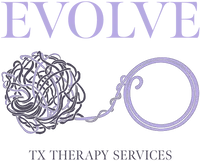Many of my clients are high-functioning, overachieving professionals who want help coping with their anxiety. Fear of failure and fear of the unknown can make it difficult for them to live their lives to their fullest potential.
You may be struggling with anxiety if you are experiencing:
- Excessive worry that is difficult to control
- Future-focused thinking, worst-case scenarios or what-if thinking
- Difficulty sleeping
- Unexplained stomach or digestive problems
- Muscle tension, heart palpitations, or changes in your body temperature
- Living in fear
If you’re nodding your head “yes,” please know that you are not alone and there is help in treating and managing your anxiety.
What about panic attacks?
Not everyone who has anxiety experiences panic attacks. Panic attacks are sudden episodes of intense fear and discomfort even where there is no real risk of danger or threat. Your body may respond to this imagined or perceived threat through:
- Pounding or racing heart
- Sweating
- Trembling or tingling
- Chest pain
- Feelings of impending doom
- Feelings of being out of control
My approach to treating anxiety and panic:
Many people with anxiety are high achievers and planners, and there are benefits to those characteristics: often excelling in work or school; prepared for events in advance and prepped for worst-case scenarios; their drive to be productive and “do.” However, there are also some costs: difficulty coping when things do not go as planned; unrealistic expectations that can lead to feelings of inadequacy (shame); the constant need to be productive can lead to difficulty relaxing and can become someone’s self-worth.
My goal is to help my clients maximize the benefits of their anxiety and use their anxiety as a strength while decreasing the costs. I do this through a variety of techniques derived from Cognitive Behavioral Therapy, Polyvagal theory, Sensorimotor, and Mindfulness approaches. I will teach you a variety of techniques to utilize outside of the session so you can control your anxiety, instead of your anxiety controlling you. We call this "functional anxiety." I will also teach you relaxation and mindfulness skills to help with reducing anxiety, improving your ability to be in and enjoy the present moment, and preventing the onset of panic attacks.
Therapy will be conducted online or virtually at an agreed-upon cadence that will help you meet your goals (ie. weekly, biweekly, once a month). I may discuss a referral for medication management in addition to therapy with you depending upon the severity of your symptoms and how they are affecting your quality of life and ability to function.
What about OCD?
Obsessive-compulsive disorder (OCD) is a disorder in which a person experiences uncontrollable and recurring thoughts (obsessions) and engages in repetitive or ritualistic behaviors (compulsions). People with OCD experience symptoms that cause them significant distress or interfere with their daily life.
Obsessions are repeated thoughts, urges, or mental images that are intrusive, unwanted, and make most people anxious. Common obsessions include:
- Fear of germs or contamination
- Fear of losing control over one’s behavior
- Aggressive thoughts toward others or oneself (often referred to as Harm OCD)
- Unwanted, forbidden, or taboo thoughts involving sex, religion, or harm
- Desire to have things symmetrical or in perfect order
Compulsions are repetitive behaviors a person feels the urge to do, often in response to an obsession. Common compulsions include:
- Excessive cleaning or hand washing
- Ordering or arranging items in a particular way
- Repeatedly checking things
- Compulsive counting
- Avoidance of objects, people, or places that may trigger intrusive aggressive thoughts
How can therapy help?
Over the years, I have worked with and treated many clients who struggle with OCD. While I am not certified in Exposure and Response Prevention (ERP), the standard for treating OCD, I do have additional training in ERP and use techniques from ERP, CBT, and mindfulness to treat my client’s symptoms. I have my clients complete an exposure hierarchy of their compulsions and teach calming techniques, mindfulness strategies, and distress tolerance skills to help them not engage in their compulsive behaviors and respond to their obsessions more effectively. Depending on the severity of their OCD and/or progress in treatment, I may refer clients to an ERP-certified provider and/or a psychiatrist or Psych NP for a medication evaluation.
Please reach out if you are ready to take back your life and gain control of your anxiety.
